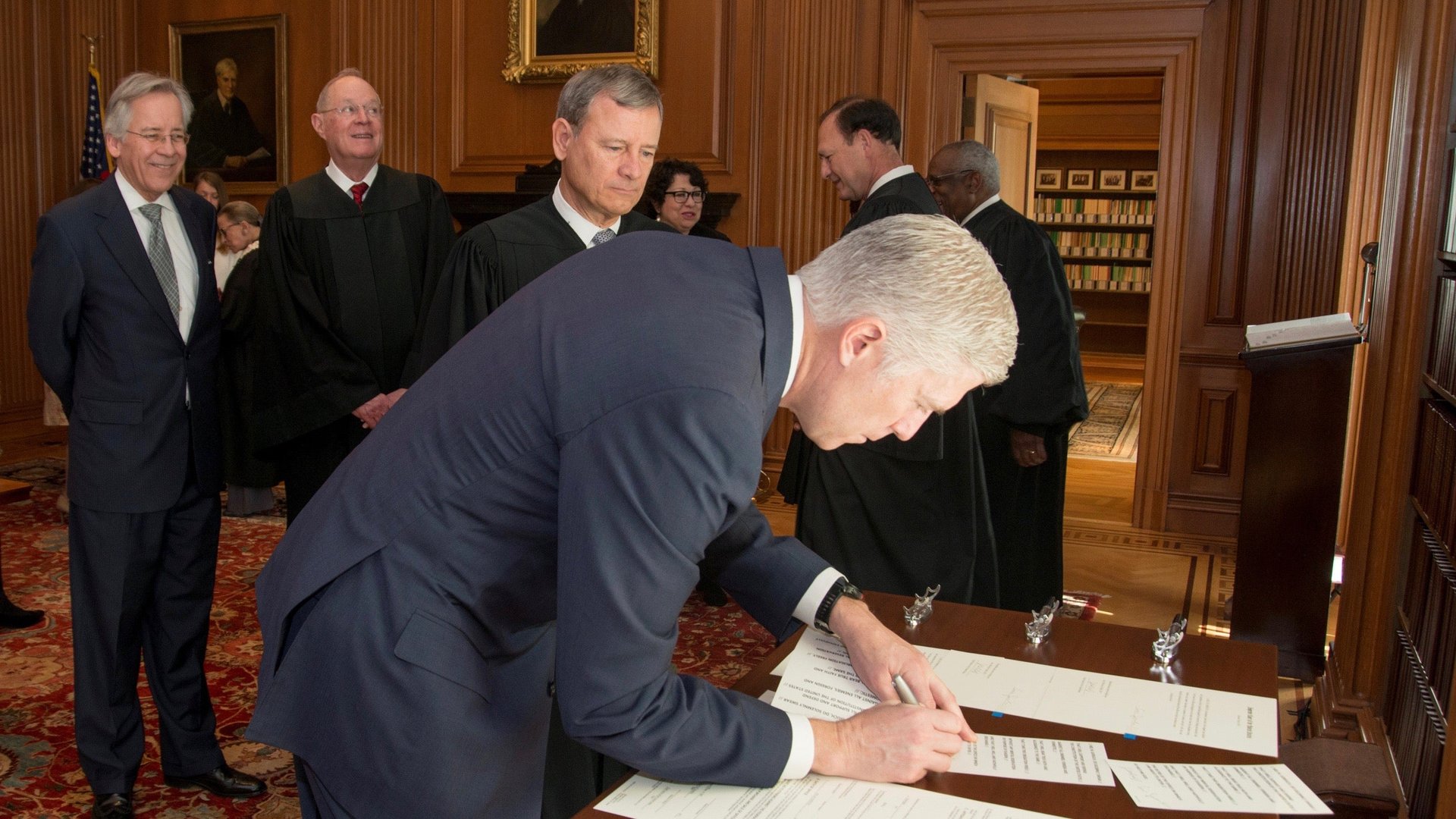Three humble duties of a junior justice on the US Supreme Court
Becoming a US Supreme Court justice is the highest honor in American law, a job that few lawyers would dare dream of, much less actually aspire to. Yet new junior justices have some very humble duties to fulfill.


Becoming a US Supreme Court justice is the highest honor in American law, a job that few lawyers would dare dream of, much less actually aspire to. Yet new junior justices have some very humble duties to fulfill.
Justice Elena Kagan has been the lowest on the high court totem pole for the last six years. Next week, she’ll be passing the torch to Neil Gorsuch, who was sworn in on April 10. She’s already warned him about what he’ll face as the new guy.
At a fireside chat at the Broadmoor Resort in Colorado Springs last August, Kagan gave Gorsuch—then on Donald Trump’s list of possible high court picks should he be elected president—a glimpse of the court’s inner workings. Here are three tasks he’ll be assuming:
Cafeteria committee concerns
Gorsuch will be on the court cafeteria committee, as every new justice must be. Kagan explained:
I think this is a way to kind of humble people. You think you’re kind of hot stuff. You’re an important person. You’ve just been confirmed to the United States Supreme Court. And now you are going to monthly cafeteria committee meetings where literally the agenda is what happened to the good recipe for the chocolate chip cookies.
The newest to the bench must also field complaints when all the justices lunch together on oral argument days. Kagan explains that her senior colleagues feign ignorance, asking, “‘Who’s our representative to the cafeteria committee again?’ Like they don’t know, right? And then they’ll say, ‘This soup is very salty.'”
Taking notes and keeping quiet
When justices meet privately to discuss cases, people speak in order of seniority after the chief justice. The most junior justice listens close and takes notes for everyone else. Kagan told Gorsuch she enjoys this part of the job—it keeps her focused on the discussion and later, she gets to communicate what was said back to her colleagues.
Getting the door
Finally, the new justice must get the door. “This is the most important responsibility,” Kagan jokes.
The court’s conference room is an inner sanctum in which there are no assistants or clerks. So, if a justice forgets their glasses or coffee and knocks on one of the two doors to the room, Kagan is the one who must get up and let them in, no matter what. She says, “Literally, if I’m like in the middle of a sentence…and there’s a knock on the door, everyone will just stare at me, waiting for me to open the door. It’s like a form of hazing. So that’s what I do, I open the door. Pronto.”
After the acrimony
Junior justices have a lot to learn and serious business to worry about. But after his controversial confirmation hearings, and the political uproar his job has caused, Gorsuch may find getting started a relief. Hazing, cookie concerns, and deciding the nation’s most perplexing cases could be a piece of cake in comparison to recent weeks.